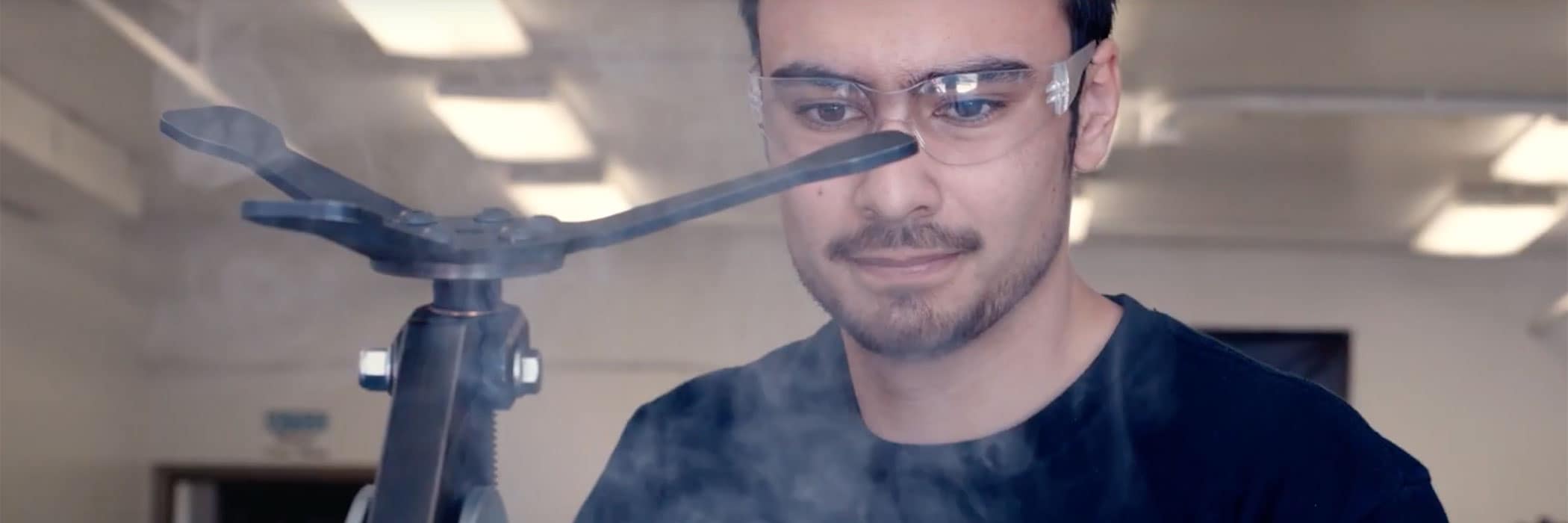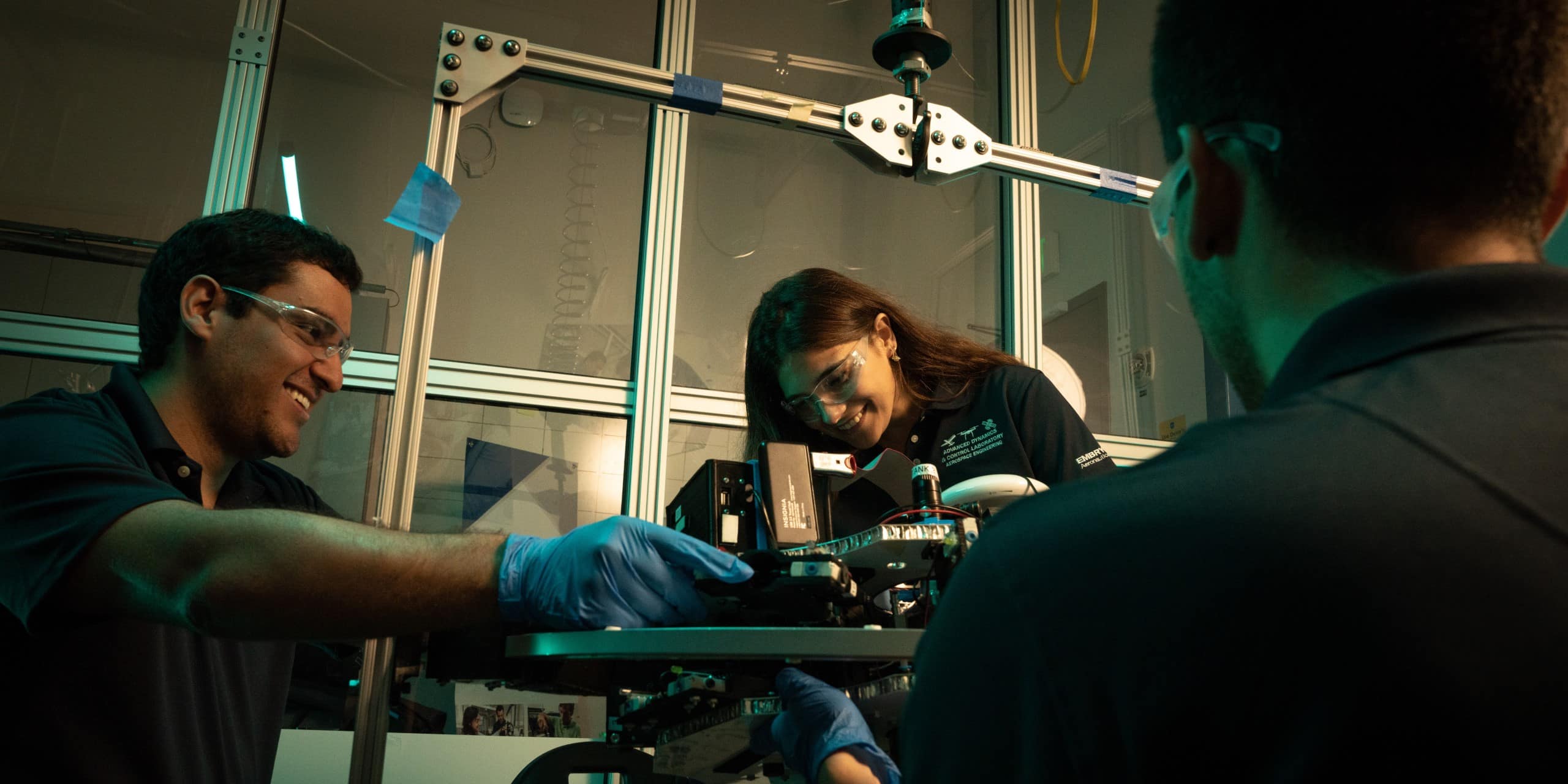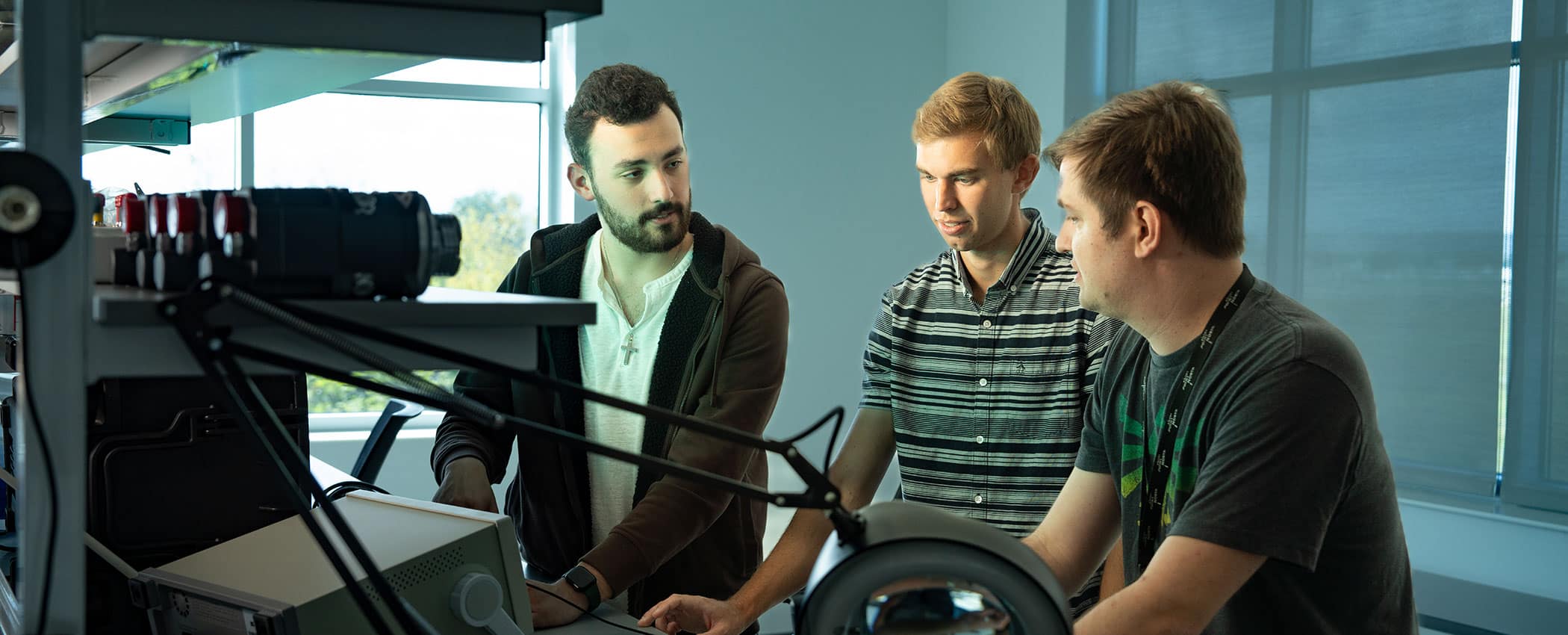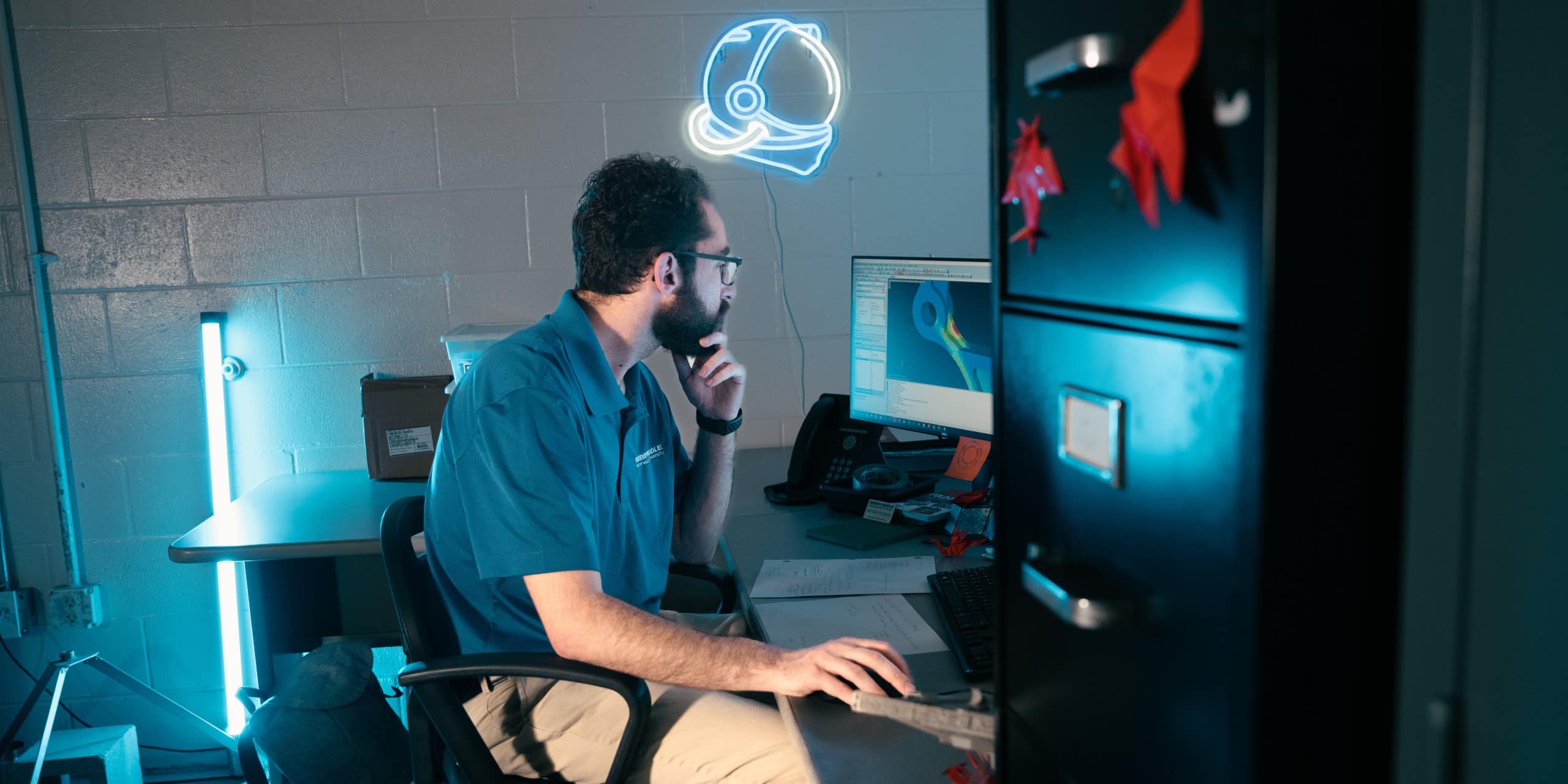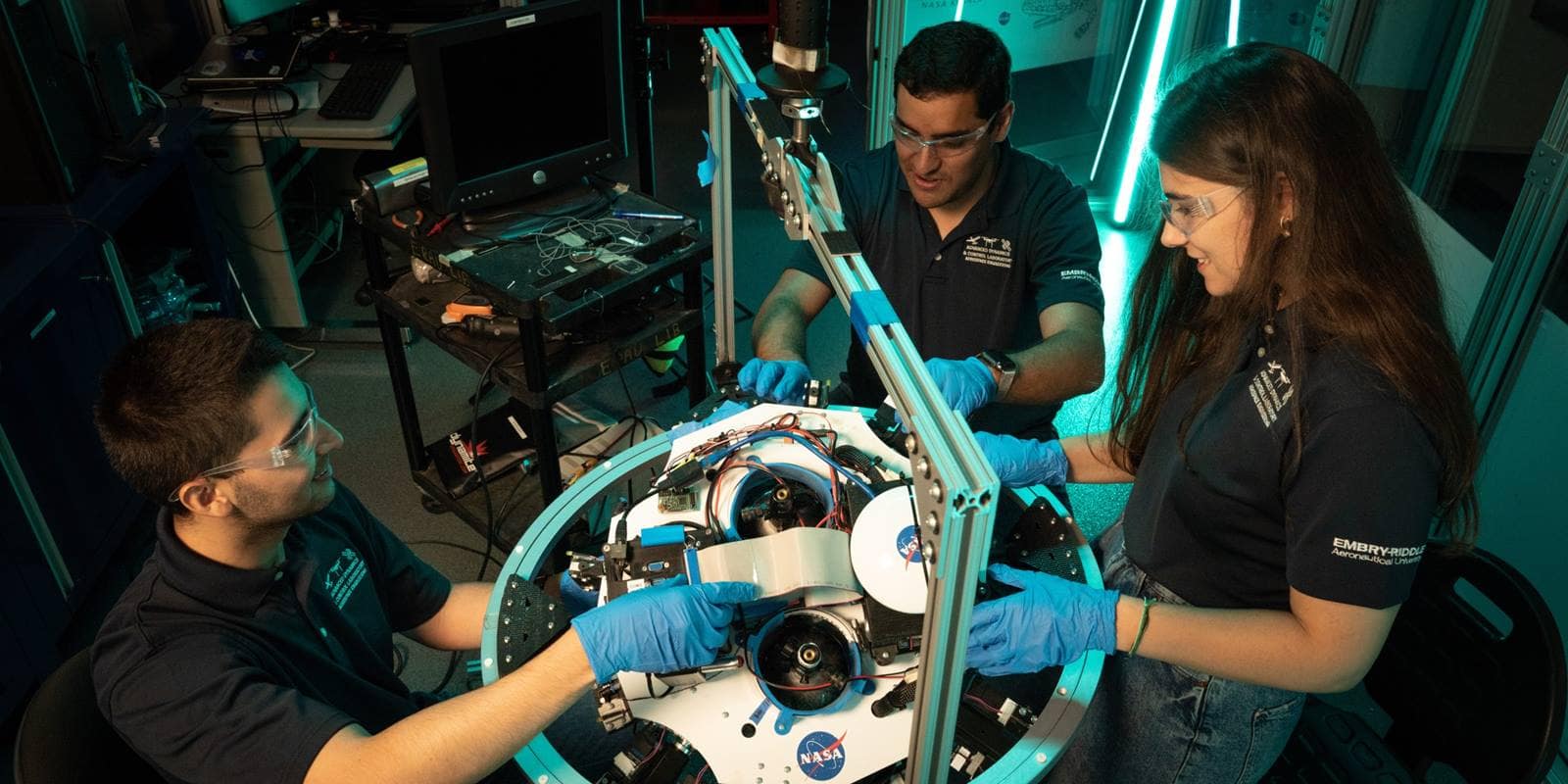
Bachelor of Science in
Engineering
The Bachelor of Science in Engineering is a multidisciplinary degree that prepares students for aeronautical, mechanical, electrical and mechatronics fields.
About the Bachelor of Science in Engineering
At Embry‑Riddle Aeronautical University, we’re preparing our students to help fill the demand for engineers with the Bachelor of Science in Engineering at our Worldwide Campus. The U.S. Bureau of Labor Statistics projects increased demand for engineers with nearly 140,000 new jobs expected between 2016 and 2026.
Designed from a multidisciplinary perspective with subject matter ranging from mechanical, electrical, aeronautical and systems engineering, the online engineering degree intends to help graduates bridge the gap across disciplines to explore innovative solutions to many tasks.
Program Educational Objectives
The engineering program will prepare:
- Technically competent graduates for a successful and productive career in the engineering profession capable of developing creative solutions to contemporary problems
- Graduates who are capable of pursuing postgraduate studies and research
- Graduates who can demonstrate their effective leadership, communication and teamwork skills in a diverse environment
- Graduates with the desire for life-long learning for the purpose of professional integrity
Student Learning Outcomes
The student learning outcomes for the BSE program are:
- an ability to identify, formulate, and solve complex engineering problems by applying principles of engineering, science, and mathematics.
- an ability to apply engineering design to produce solutions that meet specified needs with consideration of public health, safety, and welfare, as well as global, cultural, social, environmental, and economic factors.
- an ability to communicate effectively with a range of audiences.
- an ability to recognize ethical and professional responsibilities in engineering situations and make informed judgments, which must consider the impact of engineering solutions in global, economic, environmental, and societal contexts.
- an ability to function effectively on a team whose members together provide leadership, create a collaborative and inclusive environment, establish goals, plan tasks, and meet objectives.
- an ability to develop and conduct appropriate experimentation, analyze and interpret data, and use engineering judgment to draw conclusions.
- an ability to acquire and apply new knowledge as needed, using appropriate learning strategies.
Engineering Career Opportunities
Careers and Employers
With an 83% placement rate, Embry-Riddle graduates earning a multidisciplinary degree in Engineering often accept employment offers from notable employers including Honeywell, Lockheed Martin, NASA, and the U.S. Department of Defense.
Engineering students are set to work in engineering fields related to aeronautical, mechanical, electrical and mechatronics. Graduates of the program are also prepared to pursue graduate studies and research, with many finding careers as systems engineers, product development engineers, aerospace engineers and electronics engineers.
Engineering Salary Information
Receiving an online engineering degree from Embry-Riddle provides the opportunity for competitive salaries, with alumni averaging $80,000 annually as of 2021.
DETAILS
This offering is available at the following campuses. Select a campus to learn more.



